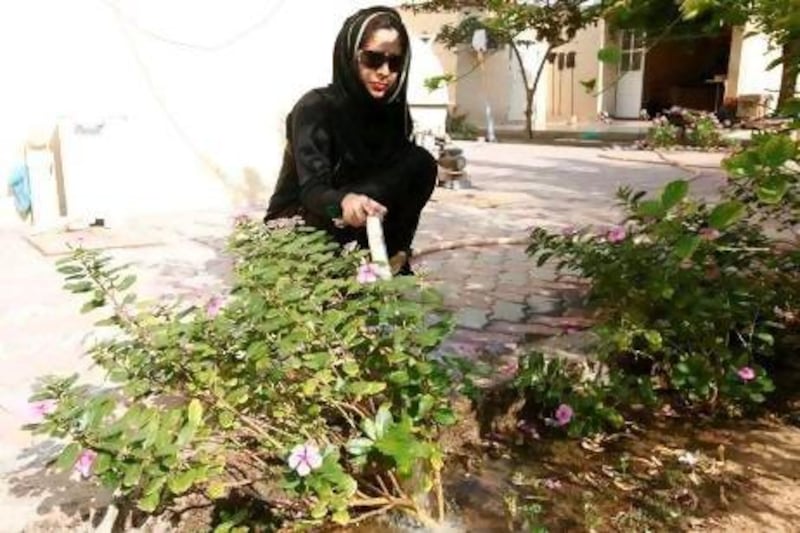AJMAN // The tap water has a strong, salty taste at the villa in which Manahel Bedah and her family live.
The Emirati fashion designer said she had never even taken a sip from the tap.
"Sometimes when I wash my teeth I can feel it is very salty," Ms Bedah said.
A sample collected from the villa in December last year showed the water was unfit for drinking.
Testing at a Dubai laboratory showed a sample had too much "total solids" - the amount of particles suspended in water and mineral ions dissolved in it.
At 1,986 milligrams a litre (mgl), the water had nearly double the limits set by the World Health Organisation (WHO) and the Gulf Standards Organisation, which allow for a maximum of 1,000mgl.
The most common mineral in the water was chloride, an ion used to make table salt.
The recommended limit for chloride is 250mgl but the sample contained more than three times that much, at 870mgl.
Even bathing in water with a high mineral content can cause rashes and other skin problems, said Liwelyn Villapando, the manager for research and development at Core Laboratory in Dubai, which conducted the water tests.
"It is very high in ion content. It should not be used even for showers," Ms Villapando said.
The high salt content in the water was no surprise to Ms Bedah, who lives in the villa near Ajman Hospital with her father, stepmother and several brothers and sisters. A total of 11 people, including the domestic help, live in the house.
"It became better than before but it is still not fit for drinking," she said.
"We only use it to clean, wash clothes and kitchen items. If we boil eggs that is fine, but for potatoes and other vegetables we do not use it."
Other Ajman residents have had similar experiences.
"The quality of the water in Ajman is very bad," said Nouf Al Alili, 22, who lives in the city's Mushrif area. "If I [want to] make some tea, I cannot use this water."
Ms Al Alili, an Emirati, lives with her parents and six siblings. The family buys bottled water to drink but still uses tap water for showers.
She said she believed the water was the reason her hair was "very bad", and fell out.
Showering with hard water, which is high in calcium carbonate, can contribute to hair loss, a common complaint in the UAE, said Dr Lanalle Chapman-Dunn, a naturpathic physician at the Wellbeing Medical Centre in Dubai.
"Clinically, a lot of people here have hair loss," Dr Chapman-Dunn said, adding she often recommended people install shower filters at home.
The laboratory analysis of the Ajman sample shows water in the emirate is very hard.
According to the US Geological Survey, this applies to water that contains more than 180mgl of calcium carbonate.
The Ajman sample contained more than twice that amount, at 400mgl.
The presence of chloride in Ajman's drinking water could also have be harmful to health, Dr Chapman-Dunn said.
"The level of chloride is a bit of a concern," she said of the Ajman sample. "I would probably not be drinking the water in Ajman and I am usually someone who supports tap water."
Chloride kills helpful bacteria living in the digestive system. Exposure to high amounts can lead to bloating and even diarrhoea, Dr Chapman-Dunn said.
With long-term exposure, people can eventually develop intestinal disbiosis - where beneficial bacteria are decreased - making them more vulnerable to fungus, parasites, viruses and pathogenic bacteria, she said.
This condition, said Dr Chapman-Dunn, was "associated with many chronic and auto-immune diseases, including cancers".
Research into the effects of exposure through drinking water also shows links with artery damage, she said.
The Ajman water sample had significant amounts of sulphate, but at 128mgl it was within the WHO limit of 250mgl.
Yet Dr Chapman-Dunn said that "lots of people are sensitive to sulphates and they are also associated with free radicals, cancer and digestive complaints".





